Natural Resources & Waste
Our Work
Latest in Natural Resources & Waste
-
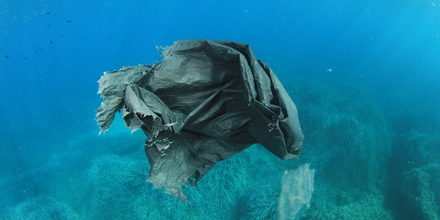
Marine microplastics: IEEP contributes to report leading to UN Environment Assembly resolution
IEEP contributed to a major international report leading to a UN Environment Assembly Resolution calling for global action on marine plastic litter and microplastics.
-
Tackling marine litter with the circular economy and the EU Plastics Strategy
IEEP identifies how the EU Plastics Strategy and Circular Economy Action Plan provide a unique opportunity to address marine litter and its impacts.
-
Plastics, Marine Litter and the Circular Economy
Briefing and three product fiches explore circular economy solutions for reducing the flow of plastic waste into the oceans.
-
Biofrontiers – sustainability critical to the development of advanced biofuels
Adherence to effective and workable sustainability criteria is an essential requirement when using public support to incentivise advanced alternative fuels.
-
How can Planetary Boundaries guide environmental policy in Europe and globally?
Planetary Boundaries are a scientific approach to exploring critical thresholds to resource use. How can this concept become relevant for policymakers?
-
Greening taxes and subsidies in the Pacific
IEEP will share its expertise on environmental taxation and the reform of environmentally harmful subsidies at a forum event on greening taxation and subsidies in the Pacific region during the IUCN World Conservation Congress in Hawaii.
-
The cascading use of woody biomass in the EU – challenges, opportunities and policy solutions
Improving the resource efficient use of wood through cascading the resource from one use to another, requires action throughout the wood flow. Current efforts focus on recovering and re-using waste wood but more could be done with the production and utilisation of wood processing residues and improving the balancing between the material and energy use of wood.
-
IEEP sets out new sustainability criteria for biofuels post 2020
Defining effective and workable sustainability criteria for biofuels is one of the critical steps in decarbonising Europe’s energy sector. Such criteria must provide the necessary safeguards for the use of bioresources in Europe, as well as the policy and investment certainty required for sustainable deployment.
-
Sustainability criteria for biofuels post 2020
Defining effective and workable sustainability criteria is one of the critical steps in decarbonising Europe’s energy sector. They must provide the necessary safeguards for the use of bioresources in Europe, as well as the policy and investment certainty required for sustainable deployment.
-
Mapping study on the cascading use of wood products
Promoting the cascading use of wood through policy is one approach to improve resource efficiency and increase the overall availability of wood for use in a variety of sectors.
-
The importance of tackling environmental crime
IEEP supported the final conference of the EU EFFACE project, focusing on the importance of adopting improved measures to tackle environmental crime.
-
A circular bio-economy in the European agriculture and forestry sectors
IEEP experts call for bridging the circular and bio-economy concepts, to support the transition of Europe’s land using sectors to a more resource efficient and sustainable future.
-
Reaching for the blue gold: interdisciplinary approaches to support water management
A new report by the European Policy Centre (EPC) summarises the existing evidence on the role of water in supporting human wellbeing. IEEP contributed to insights on the policy instruments available for sustainable water management.
-
Volkswagen: Painful Lessons
The latest edition of IEEP's newsletter is now available. David Baldock discusses Volkswagen and lack of implementation and compliance across EU environmental policy in general. Also: greening of the CAP; Marine Protected Areas; and LULUCF.
-
Assessing sustainable biomass availability
Dr. Ben Allen presented IEEP’s views on the sustainable use of biomass at an international conference in Brussels. Understanding the scale of the resource is a key part of determining appropriate policy intervention and ensuring commercial viability.
-
Quantified impacts and costs of environmental crime
As part of the European Union Action to Fight Environmental Crime (EFFACE) project, IEEP researchers have examined the impacts of illegal e-waste shipments from the European Union to China.
-
How to stimulate a bio-economy based on waste? – A study for the UK Government
Waste resources have the potential to provide a core component of developing bio-economies across the globe. A new IEEP report reviews how waste has been incorporated into existing bio-economy strategies, and the conditions that have enabled this.
-
New open access book on marine litter
A new book, 'Marine Anthropogenic Litter', has been published comprising 16 chapters on various aspects of the complex issue of litter in the world’s oceans. Researchers from IEEP contributed a chapter on the economics of marine litter. The whole book is free to view online.
-
Looking beyond Paris
The latest edition of IEEP's newsletter is now available. David Baldock argues that in the next six months the EU has a substantive role in contributing to agreement on an ambitious but credible set of SDGs and more stretching climate targets. Also: energy efficiency and security; bioeconomy; and circular economy.
-
Tackling environmental crime
A workshop on environmental crime was held on 25 March in Granada, Spain, with Andrea Illes from IEEP providing insights into illegal e-waste shipments from the EU to China.
Highlights
-
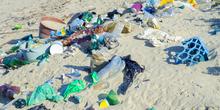
Plastics, Marine Litter and the Circular Economy
Briefing and three product fiches explore circular economy solutions for reducing the flow of plastic waste into the oceans.
-

The cascading use of woody biomass in the EU – challenges, opportunities and policy solutions
Improving the resource efficient use of wood through cascading the resource from one use to another, requires action throughout the wood flow. Current efforts focus on recovering and re-using waste wood but more could be done with the production and utilisation of wood processing residues and improving the balancing between the material and energy use of wood.
-
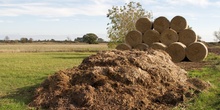
Sustainability criteria for biofuels post 2020
-
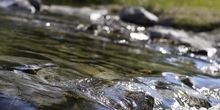
Reaching for the blue gold: interdisciplinary approaches to support water management
-
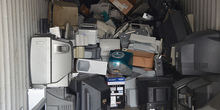
Quantified impacts and costs of environmental crime
-

Does the EU benefit the UK environment?
-
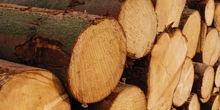
EU Natural Resources policy: Signposts on the roadmap to sustainability
